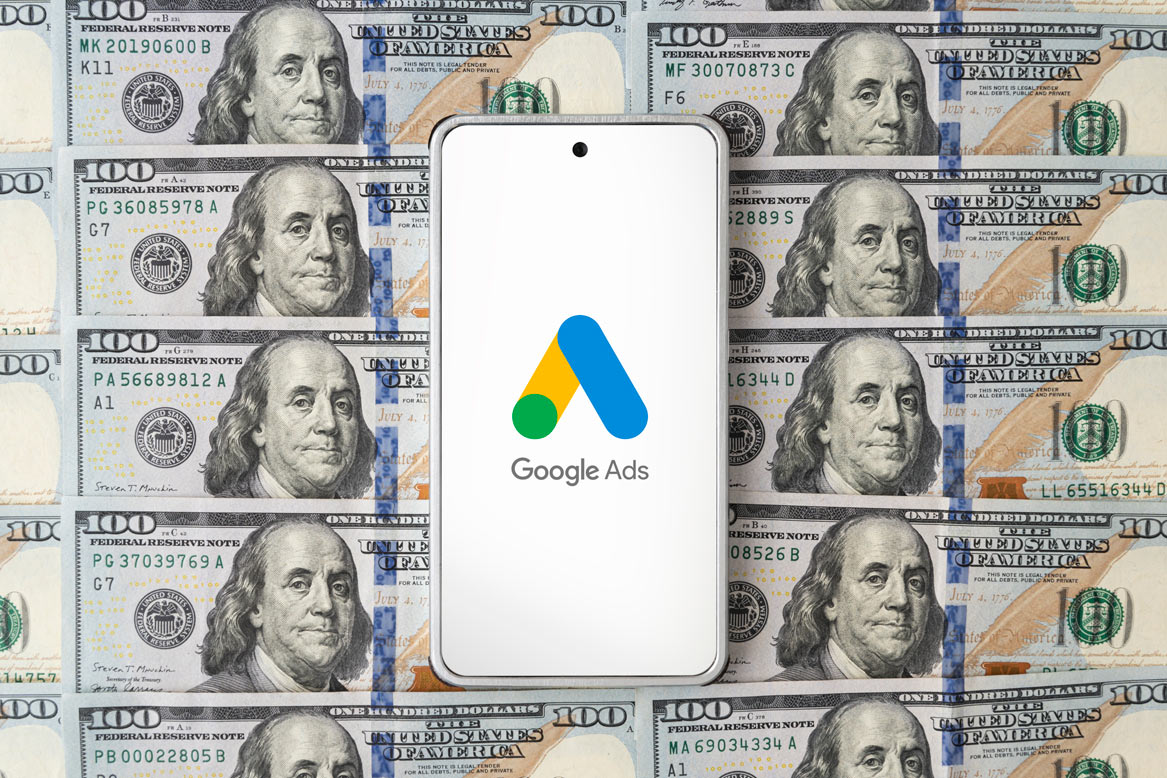Privacy challenges and changes are causing a paradigm shift in advertising. Not only is Google Ads impacted but all online advertising platforms including Microsoft Advertising, AdRoll, and others.
This is a complex topic, but I will work to make it easy to understand. Regulations and expectations have changed. The Chrome browser will be retiring the use of third party cookies in 2022. Many browsers like Firefox and Microsoft Edge are already providing users expanded privacy protection. With Google serving nearly 80% of digital advertising, it and the Google Ad platform will be hurt the most by these new privacy initiatives.
The bottom line is that third party cookies which are being degraded drive conversions as a user travels the web. Knowing more about you and what you share with Google (via cookies) and what browsers record about your activities online – drive conversions for advertisers. Take that away and advertisers will be less relevant to your needs. When advertisers struggle to make conversions and drive sales, Google is impacted as advertising dollars are moved to other advertising products.
81% of internet users this year became more concerned about privacy and personal data. 59% of internet users feel that their privacy is not sufficiently protected by the companies that they do business with. (From the Google Partner seminar on Planning for Privacy-Safe Growth.)
The challenges are real. Google has introduced an initiative to be used in Chrome and is hoping other browsers will embrace it. It is called FLoC Federated Learning of Cohorts. This initiative plans to anonymize data and then group users into clusters which it will use as audiences for ad serving. Already, Microsoft Edge and possibly even Firefox have said they will block FLoC tracking.
The difficulties are real for businesses advertising digitally. With less direct information, that was previously delivered by third party cookie tracking, the less relevant ads will be. Remarketing lists will be smaller as many users will not be able to be tracked. Fewer conversions will be recorded in the Google Ads control panel to be used by the bidding algorithms to adjust bids to deliver optimized results. There will be less personalization and fewer personalized ad served to you after you have done a recent search for a product. Google will have limited ability to create audience lists that will be meaningful that can drive additional conversions and sales. The list goes on.
These privacy changes are great for consumers, but for advertisers will require a shift in approach to reach relevant audiences to promote their products and services in a new privacy-safe way.
The key to this new world is the use of first party data. Here are my recommendations.
If you are not collecting email address for interaction with clients through form fills or purchases, you should plan on implementing that right away.
If you are not collecting client emails on a spreadsheet for marketing use, start now. If you are using customer relationship management software you should be downloading and then exporting your properly formatted customer list into Google Ads every six months (Google’s recommendation).
All businesses should be using Customer Match in Google Ads and then layer this audience over all campaigns. This first party data will help the modeling that Google will be doing in your account to help your advertising be more productive.
Review your Google Ads and Google Analytics tags – Google recommends use of the global site tag and an upgrade to Google Analytics 4. You may want to consider moving to Tag Manager as Consent Mode will be turned on in the USA in the very near future. Add the Google Tag Assistant to Chrome as an app then visit your website to see what tracking code version you are using now. You may need an updated.
Without data, Google expects to see conversions recorded in Google Ads decline. With data the hit may only be 5% or so. Google has stated that what data it cannot get from first party information, it will model. The less modeling the better.
It is important to know that even with these changes, your website is not impacted or your sales just your advertising. You still get the conversions it is just that the data on the sale or form fill no longer flows to Google Ads as it has before. With bidding algorithms using conversion/lead data to make bidding decisions it simply means that these tools become less effective in controlling costs and bidding effectively.
Overall, I want to express that I am not worried by these changes. In many cases I feel that the increased level of data protection is a good thing for the end user. What we want to do is to help all our advertiser embrace this new privacy environment and work to use that tools that are available to control the impact on their business.
We will be reaching out to our clients with an action plan to help address a number of these changes. Many of our clients have already been approached with a request to refresh customer match lists. More will be contacted in the near future to help them create customer match lists for the first time.
Our recommendation is to simply start by reviewing are you keeping a list of email address for customers and prospects. Can you offer a special download and get an email address in return to start building your first party data list? That is a great place to start.
Our team will guide you through the process in the month ahead with suggestions on steps you can take to have a privacy forward focus for the future.
For more information about McCord Web Services, a Google Partner, please visit our website to learn more about our mission and our services.
Update: as of late 6/24/21 Google announced that is delaying the Chrome cookie update until late 2023 due to advertiser concerns in embracing the new tracking technologies.



